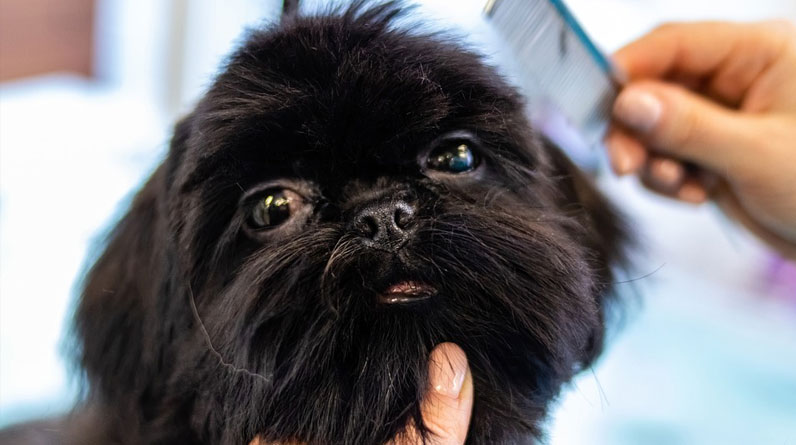
The Realities of Spaying or Neutering
Crushed over your new puppy? The love is so real, and you’re so ready to take that relationship to the next level and get your pup fixed (also known as spaying or neutering).
But what, exactly, does that mean? What are the benefits of getting your puppy spayed or neutered? Do you still need to keep them separated when they’re older? If so, for how long? And why is it important to do so now rather than later?
Statistics say 22% of owned pets are unneutered. That’s a lot of pets breeding at an alarming rate. Thankfully, spaying and neutering have become more commonplace than ever before.
What Are Spaying and Neutering?
Spaying is a surgical procedure that removes a female’s ovaries and uterus, while neutering is a procedure that removes a male’s testicles. Both procedures are performed by your pup’s veterinarian, and they have the same goal: to prevent pregnancy.
Spaying and neutering also prevent your pup from contracting illnesses like fatal uterine and ovarian cancers, not to mention uterine infections that can be life-threatening to your pup.
Spaying and neutering are also known as “sterilization” because they permanently stop your pup from reproducing. They do not cause your pup to lose the sexual drive or make your pup any less affectionate. In fact, neutering your male pup can actually make him friendlier and more affectionate!
Why Is It Important to Spay or Neuter Your Puppy?
Sterilization isn’t just an elective procedure for the sake of convenience. The health benefits of spaying and neutering your pup are numerous, and every responsible dog owner should opt for this procedure once their pup is of breeding age.
Spaying and neutering are important because they keep your pup healthier. Both procedures reduce your pup’s risk of developing certain cancers and infections, and spaying a female pup reduces the risk of uterine infections.
Spaying also prevents your female pup from developing pyometra, fatal infection of the uterus. Spaying and neutering keep your pup safe. Pregnant dogs can experience health complications or even die during or after giving birth.
Unsterilized dogs can run into problems, too: they’re more likely to fight with other pets (like other unsterilized males) or wander away from home in search of a mate, making them easy targets for cars, poisons, or other dangers.
Reasons to Get Your Puppy Fixed
- Your pup’s health – Spaying and neutering keep your pup healthier by reducing its risk of disease. Spaying your female dog before her first heat cycle will prevent her from ever developing ovarian cancer. It will also prevent your dog from ever becoming pregnant, reducing the risk of accidental breeding and unwanted litters. Neutering your male dog will prevent testicular cancer, reduce the risk of prostate cancer, and reduce the risk of your dog ever impregnating another dog. Spaying and neutering are especially important if you have a pet that is genetically predisposed to certain diseases. For example, dogs with a German shepherd or husky heritage are at risk of developing a type of prostate cancer that is almost always fatal if it isn’t treated early.
- Behavior – Unsterilized dogs are more likely to engage in aggressive behavior (like fighting), roam in search of a mate, and be picked up by a shelter or pet adoption center. Sterilizing your dog before sexual maturity can help to prevent these problems. Furthermore, it’s a good idea to have your dog fixed if you have a female dog that you’d like to keep from having puppies. Unfixed females are much more likely to have problems with wandering, fighting with other dogs, or getting pregnant. It’s also important to have your dog fixed if you have small children in your home. Kids are more likely to get bitten by a dog if there’s a chance the dog could wander, fight with other dogs, or be picked up by a shelter.
- Preventing unwanted litters – If you want to keep your pup at home and out of the shelter, spaying or neutering them is a must. Unsterilized dogs also make up a huge portion of the pet overpopulation crisis, so reducing their numbers will go a long way toward solving that issue as well. Unfixed dogs are also much more likely to spread dangerous diseases like canine influenza and other viral diseases that can be deadly to other dogs.
- Your wallet – Unsterilized dogs cost more to keep. They’re more likely to get sick, which means you’ll spend more money on vet bills.
- No diapers or crating – There’s no need to confine your pup while they’re healing from their spay or neuter surgery.
- Your heart – You’ll know that your pup is safe, and healthy, and can’t accidentally produce puppies.
A few Things You Should Know Before You Decide
- Young pups can still be spayed or neutered. It’s better to do it earlier than later.
- But keep in mind your pup may be more at risk for certain diseases and health conditions if they’re spayed or neutered too early.
- The ideal time to do this procedure is between the ages of 6 and 12 months. During this time, a pup’s body is growing and developing. They may be more prone to certain diseases or health conditions if they’re spayed or neutered too early.
The Final Word
Your puppy will love you for it: the health benefits and reduced risk of disease, the reduced risk of wandering away from home or getting into fights, and the chance to grow up without the added responsibility of having babies. You’ll love yourself even more for knowing you took the responsible route and got your pup fixed as soon as you took them home.


